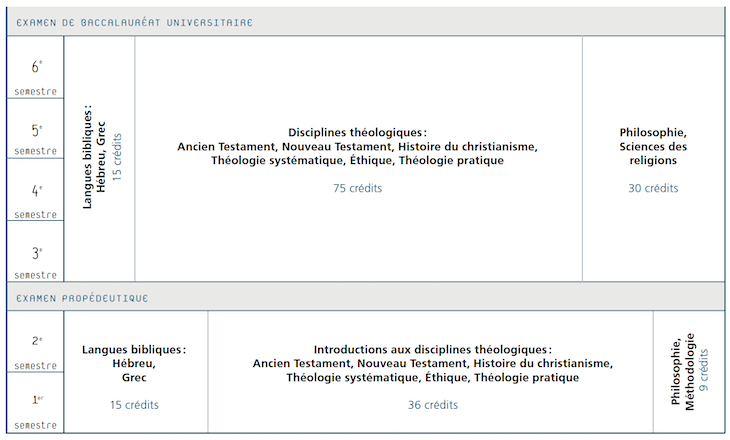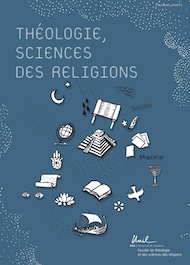The main purpose of studying theology is to develop a detailed, critical understanding of fundamental Christian texts, the Christian tradition and various historical, philosophical, theological and ethical currents of thought, as well as contemporary expressions of Christianity. Theology also takes a critical look at church practices.
The Bachelor’s degree comprises several disciplines characterised by a range of different approaches, but with close connections and interactions between them. These are:
- Hebrew Bible/Old Testament
- New Testament and ancient Christian literature
- History of Christianity
- Systematic theology
- Ethics
- Practical theology
- Study of religions, psychology of religion and sociology of religion

Organiser
College of Protestant Theology
Degree Awarded
Bachelor of Theology (BTh)
ECTS Credits
180
Duration
6 semesters
Teaching Language
French
Enrolment deadline
30 April. If you require a visa to study in Switzerland: 28 February.
Further information
Applications
Course description
Timetables
At UNIL, the following Master's programmes are open without further conditions to holders of the Bachelor in Theology (BTh):
- Master of Theology (MTh)
- Master of Arts (MA) in the Study of Religions with or without Specialisation Focus on Interculturality
- Master of Arts (MA) in Digital Humanities
Career prospects depend partly on the choice of Master’s course.
Areas of activity
After your Master of Theology course (having taken the “practical theology” option) and a pastoral placement, you will have the option of practising as a pastoral minister, which offers a variety of opportunities, including facilitating events, celebrations, catechism, support, chaplaincy, missions, educational and mutual support initiatives, etc. If you do not wish to work in the church, you may be interested in a range of other professional sectors, including journalism, social work, teaching, non-governmental organisations, publishing, etc.
Joining the ministry
If you are thinking about practising as a minister in a Reformed Church in French-speaking Switzerland (associated with the Conférence des Eglises réformées de Suisse romande) (Conference of Reformed Churches in French-speaking Switzerland), it is possible to complete a so-called “exploratory” placement in a church during your studies. This involves shadowing a minister for one to three months and is an excellent opportunity to make contacts and gain initial experience.
To practise as a minister, you will need a university Master of Theology qualification (“practical theology” option), followed by an 18-month placement. After your placement and some initial practical experience (as a suffragant or deputy), you can apply to your church’s ordination committee to be ordained as a pastoral minister.
Pedagogical supervision of your placement and its accompanying courses is provided by the Office protestant de la formation (Protestant Training Office).
In figures
Every two years, the Swiss Federal Statistical Office (OFS) conducts a survey on graduate employment, one year after students have completed their course. View the results for Theololgy graduates online:
- “Premier emploi après les études” (“First job after graduating”) survey on employment among Swiss university graduates
- De l’UNIL à la vie active (From UNIL to working life) – results of the survey for UNIL graduates specifically

